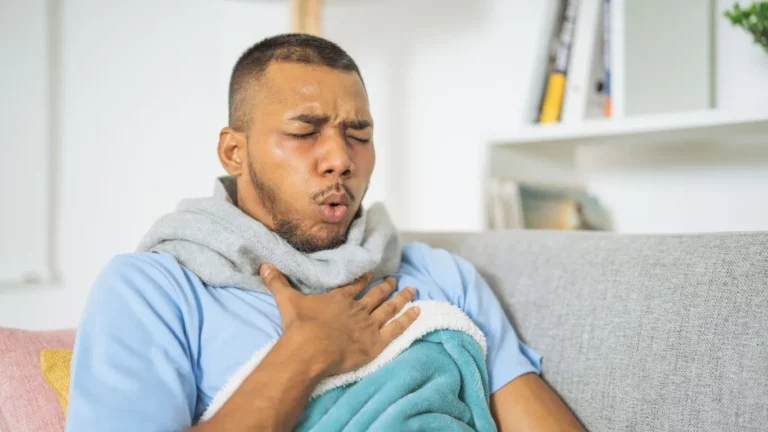The Hidden Link Between Hypertension and Anxiety – Break the Cycle Today
Hypertension and anxiety—two health concerns that often go hand in hand, yet so many people don’t realize just how deeply they’re connected. As someone who has spent years helping patients navigate the ups and downs of high blood pressure, I’ve seen firsthand how anxiety can wreak havoc on the cardiovascular system. But here’s the thing—most people think of hypertension as just a “blood pressure problem” and anxiety as purely “mental health-related.” The truth? They’re like two sides of the same coin, feeding off each other in ways that can make managing either one a serious challenge.
Hypertension and Anxiety: Understanding the Link
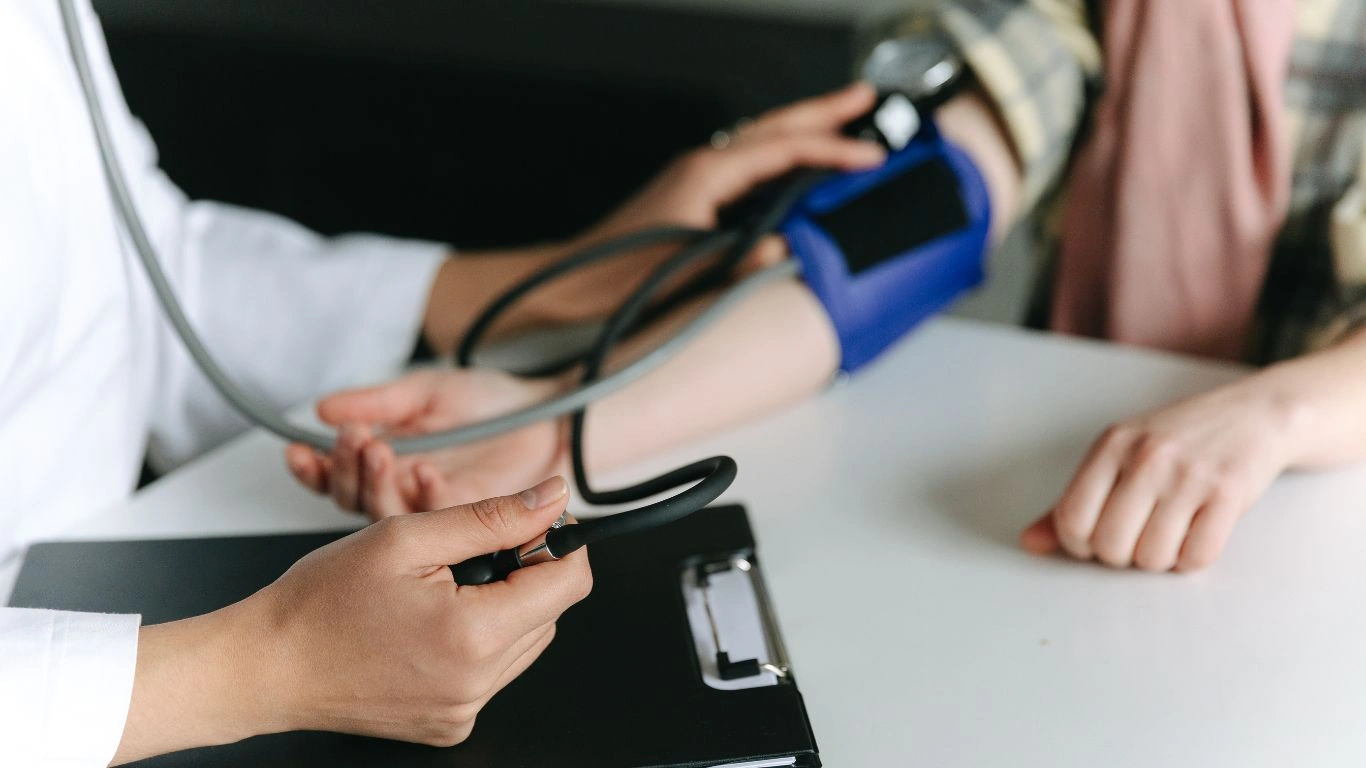
Picture this: You’re sitting in a doctor’s office, waiting for your blood pressure reading. The cuff tightens around your arm, and suddenly, your heart is pounding. You’re not just nervous—you’re anxious. And that anxiety? It’s spiking your blood pressure right at that moment. But here’s the kicker: It’s not just temporary. If anxiety is a regular part of your life, it could be playing a much bigger role in your long-term hypertension than you realize.
How Stress and Anxiety Impact Blood Pressure
Stress and anxiety trigger the body’s fight-or-flight response. This isn’t just some psychological reaction—it’s a full-blown physiological event:
- Your heart rate increases
- Blood vessels constrict
- Stress hormones like cortisol and adrenaline flood your system
Over time, this repeated cycle puts extra strain on your blood vessels, making it harder for your cardiovascular system to regulate blood pressure efficiently.
Is It Temporary or Chronic Hypertension?
One question I get a lot from patients: “If my blood pressure goes up when I’m stressed, does that mean I have hypertension?” Not necessarily. Anxiety can cause temporary spikes—what’s often called “white coat hypertension” when it happens in a medical setting. However, if you’re anxious often, your blood pressure may stay elevated even when you’re not feeling stressed, leading to chronic hypertension over time.
Why This Connection Is Often Overlooked
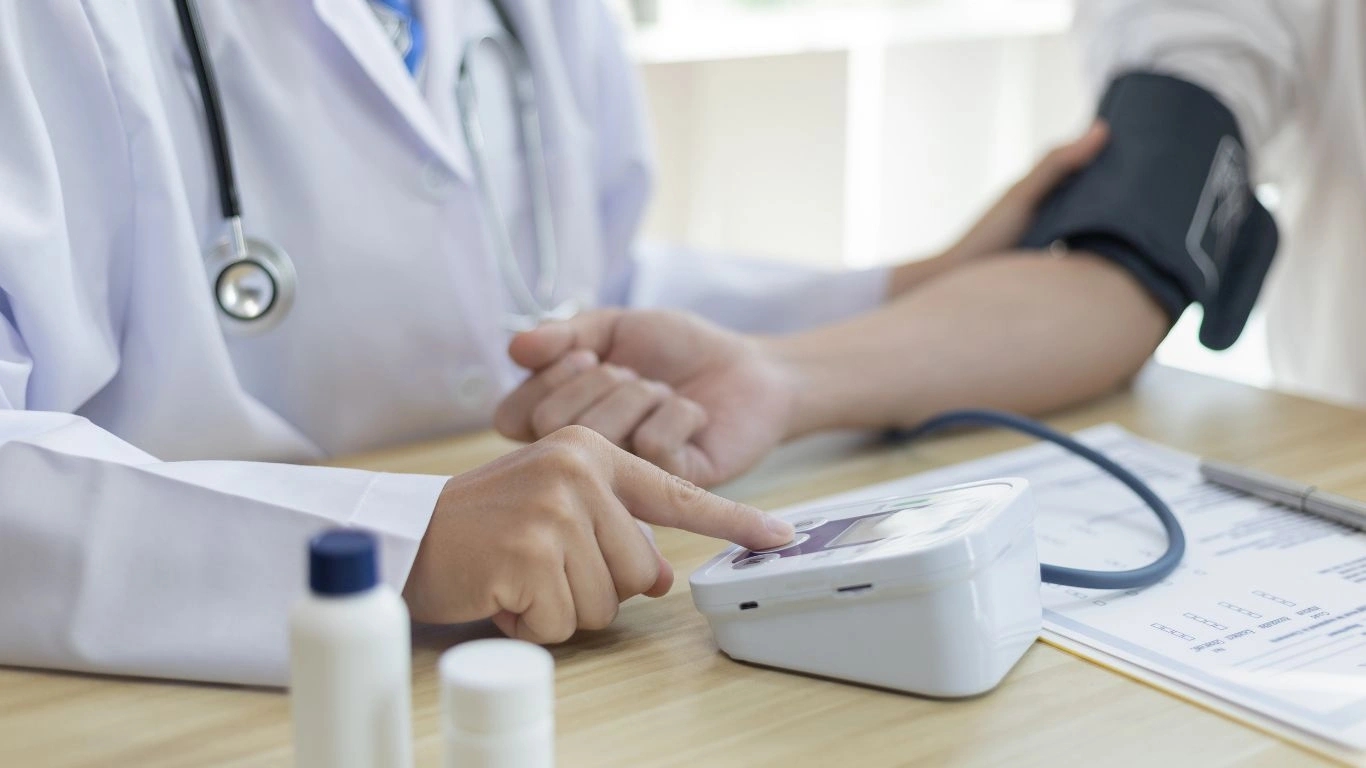
In my experience, many healthcare providers focus on treating hypertension as a physical condition, without always addressing the emotional side of the equation. But anxiety isn’t just “in your head”—it has real, measurable effects on your body.
The Cycle of Anxiety and Hypertension
Here’s where things get tricky: Anxiety can cause hypertension, and hypertension can increase anxiety. It’s a vicious cycle.
- You feel anxious, so your blood pressure rises.
- You get worried about your blood pressure being high.
- That worry leads to more anxiety, which keeps the cycle going.
Many of my patients have been stuck in this loop for years without realizing what’s really happening.
Recognizing the Symptoms: What to Watch For
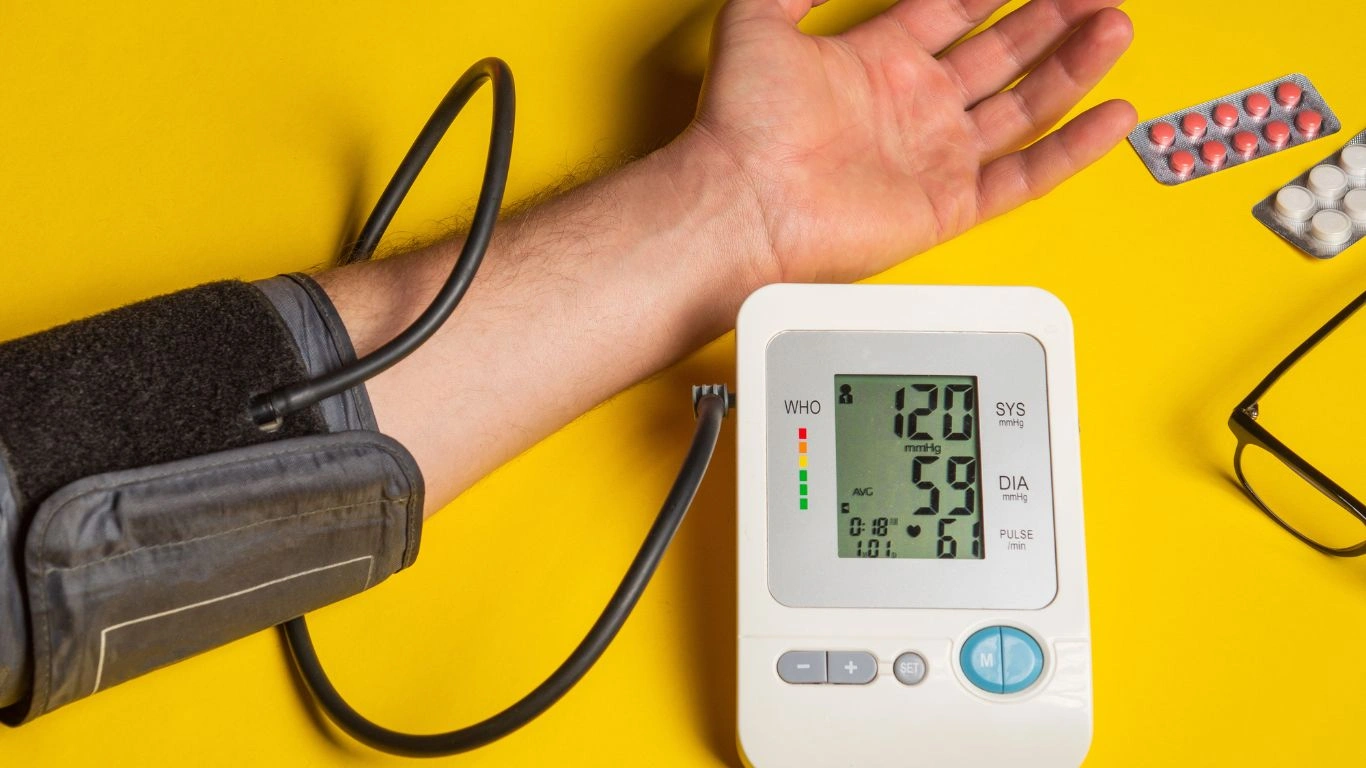
Hypertension and anxiety share a lot of symptoms, which can make it hard to tell what’s causing what. Some common overlapping signs include:
- Racing heart or palpitations
- Headaches
- Dizziness
- Shortness of breath
- Fatigue
If you’ve ever had a panic attack, you know how frightening these symptoms can feel. And if you also have high blood pressure, it’s easy to assume every symptom means something is wrong with your heart. This fear alone can keep your anxiety levels high, adding even more fuel to the fire.
When to See a Doctor
So how do you know if your symptoms are anxiety-related, hypertension-related, or both? Here’s a quick guide:
- If your blood pressure spikes only during stressful moments but returns to normal, anxiety may be the main factor.
- If your blood pressure remains consistently high, even when you’re calm, you could have chronic hypertension that needs medical attention.
- If you’re experiencing extreme dizziness, chest pain, or fainting, seek medical help immediately—these could be signs of a more serious condition.
Either way, don’t ignore it. I always tell my patients—whether it’s anxiety or hypertension, early intervention is key.
How Lifestyle Choices Influence Both Anxiety and Hypertension

One of the first things I tell my patients struggling with both anxiety and hypertension is this: Your daily habits matter more than you think. A lot of people assume that high blood pressure is just a genetic thing—if it runs in the family, you’re doomed. But while genetics play a role, lifestyle factors are often the real culprit behind worsening symptoms.
The Role of Diet: More Than Just “Eating Healthy”
I’ve lost count of how many times a patient has told me, “I eat healthy,” only to find out their version of “healthy” includes processed low-fat foods, excessive caffeine, or hidden sodium bombs. Let’s break it down:
- Salt overload: Sodium causes fluid retention, which raises blood pressure. If you’re eating lots of packaged foods, takeout, or even “healthy” frozen meals, you’re probably getting more salt than you think.
- Caffeine and stimulants: Coffee, energy drinks, pre-workout supplements—these can all trigger anxiety and spike blood pressure. If you’re drinking multiple cups a day and feeling jittery, it’s worth cutting back.
- Refined carbs and sugar: Blood sugar spikes can increase cortisol (your stress hormone), making anxiety worse and indirectly affecting blood pressure.
Instead, I recommend focusing on whole, nutrient-dense foods. Think leafy greens, lean proteins, nuts, seeds, and plenty of potassium-rich foods like bananas and avocados, which help balance sodium levels.
Exercise: The Best Natural Stress Reliever
We all know exercise is good for heart health, but if you have anxiety, it’s a game-changer. I had one patient who was constantly worried about her blood pressure readings, which—surprise—only made them worse. I suggested she start walking for just 20 minutes a day. Within a month, her readings improved, and she felt less anxious overall.
Here’s why exercise works:
- It helps regulate stress hormones like cortisol and adrenaline.
- It boosts endorphins, your body’s natural mood stabilizers.
- It improves circulation and heart function over time.
Not a fan of the gym? No problem. Try yoga, dancing, swimming, or even just daily walks. The key is consistency, not intensity.
Managing Stress: Practical Strategies That Work

When I ask patients how they manage stress, I usually get one of two responses: either a blank stare or a nervous laugh. The reality is, most of us don’t have a solid stress management plan—we just push through until burnout hits.
Mindfulness and Deep Breathing: Small Changes, Big Impact
One of the easiest ways to calm both anxiety and blood pressure is by using breathing techniques. The best part? You can do them anywhere. If you’ve ever felt that tightness in your chest when anxiety kicks in, this is for you:
- 4-7-8 Breathing: Inhale for four seconds, hold for seven, and exhale for eight. This activates the parasympathetic nervous system, which calms the body.
- Diaphragmatic breathing: Breathe in deeply through your nose, letting your belly expand, then slowly exhale through your mouth.
It sounds simple, but trust me—it works. I’ve seen patients lower their blood pressure by several points just by incorporating deep breathing daily.
Sleep: The Overlooked Factor
Did you know that poor sleep can both raise blood pressure and increase anxiety? It’s a double whammy. If you’re only getting five or six hours of sleep a night, your body is in a constant state of stress, making it harder to regulate both conditions.
Here’s what I recommend:
- Stick to a schedule: Go to bed and wake up at the same time every day, even on weekends.
- Avoid screens before bed: The blue light from phones and TVs messes with melatonin production.
- Try magnesium: This mineral helps relax the nervous system and can improve sleep quality.
Even small adjustments to your nighttime routine can make a huge difference.
Medical Interventions: When Lifestyle Changes Aren’t Enough

Let’s be real—not everyone can manage hypertension and anxiety with lifestyle changes alone. Sometimes, medical intervention is necessary, and that’s okay. The key is working with a healthcare professional to find the right approach for you.
Medication Options: What You Should Know
Depending on your situation, a doctor might prescribe:
- Beta-blockers: These help lower blood pressure and also reduce physical symptoms of anxiety, like a racing heart.
- Anti-anxiety medications: In some cases, short-term use of medications like SSRIs or benzodiazepines may be recommended.
- ACE inhibitors or calcium channel blockers: These help relax blood vessels, making it easier for blood to flow.
Medication isn’t a one-size-fits-all solution, but for some people, it’s a necessary tool to break the cycle of anxiety and hypertension.
Therapy and Counseling: Addressing the Root Cause
Sometimes, the best treatment isn’t physical—it’s psychological. Therapy can help identify triggers, teach coping strategies, and provide long-term relief. Cognitive-behavioral therapy (CBT), in particular, is highly effective for anxiety.
In my experience, patients who combine therapy with other lifestyle changes see the best results. It’s all about creating a well-rounded approach.
Building a Long-Term Plan for Managing Hypertension and Anxiety

By now, you understand how deeply connected hypertension and anxiety are, and hopefully, you’re starting to see ways to break the cycle. But here’s the thing: managing these conditions isn’t about quick fixes—it’s about long-term consistency. One of the biggest mistakes I see people make is going all-in for a few weeks, only to fall back into old habits when life gets busy.
So how do you make these changes stick? Simple: set realistic goals and build habits that work for you. Let’s talk about how to make sustainable progress.
Creating a Personalized Routine
What works for one person may not work for another. I’ve had patients who swear by meditation, while others feel more in control after making dietary changes. The key is to find what fits your lifestyle. Here’s how:
- Start small: If you’re new to exercise, don’t jump into an intense workout plan. Begin with a 10-minute walk and build from there.
- Make dietary swaps: Instead of cutting out all “bad” foods at once, swap processed snacks for nuts or fruit.
- Practice stress management daily: Even five minutes of deep breathing can make a difference.
- Track your progress: Keep a simple journal of your blood pressure readings, stress levels, and habits.
Remember, small changes add up. It’s about progress, not perfection.
The Importance of Support: You Don’t Have to Do This Alone
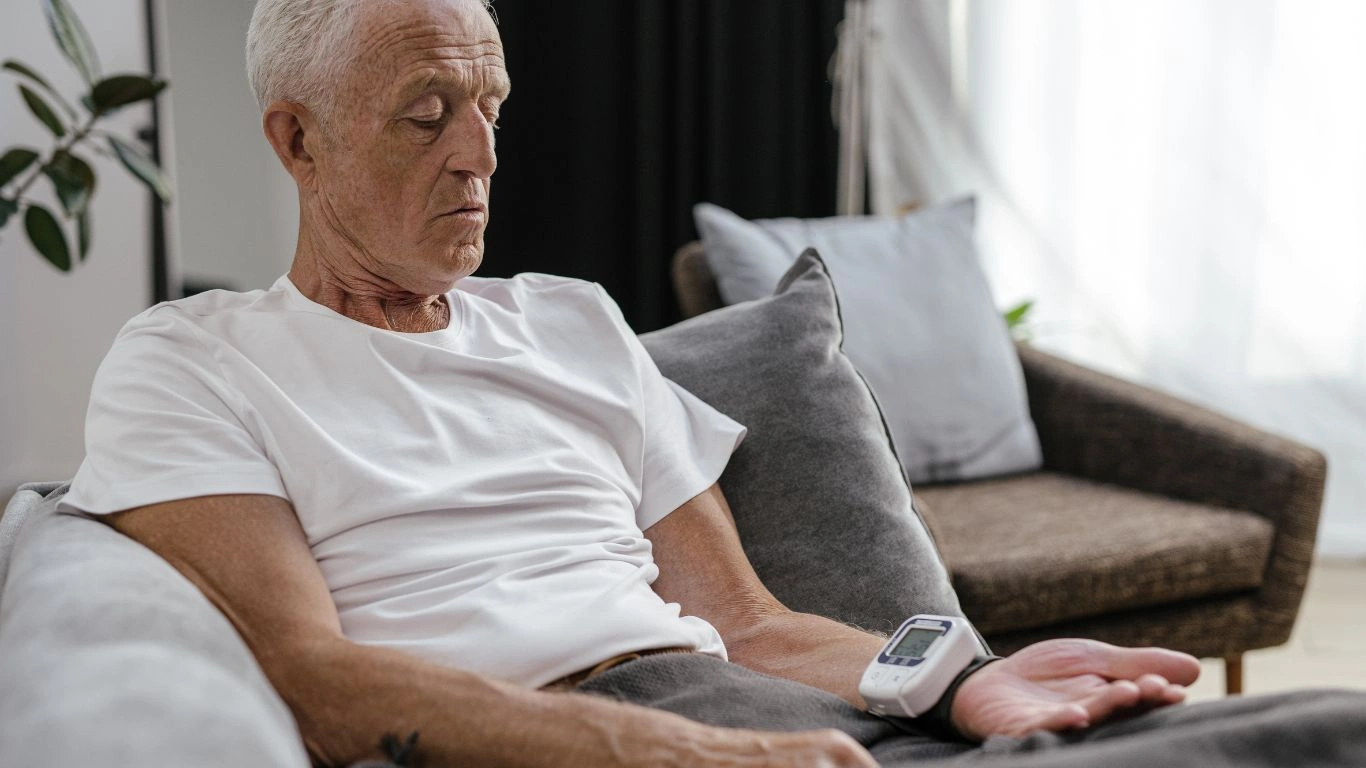
One of the most overlooked factors in managing hypertension and anxiety is having the right support system. Let’s be honest—trying to handle everything on your own can feel overwhelming. That’s why I always encourage my patients to build a strong support network.
Who Can Help?
- Your doctor: Regular checkups ensure your treatment plan is working and allows for adjustments as needed.
- A mental health professional: If anxiety is a big factor in your high blood pressure, therapy can be a game-changer.
- Friends and family: Let your loved ones know what you’re going through so they can encourage healthy habits.
- Support groups: Whether online or in-person, connecting with others facing similar challenges can be incredibly motivating.
Having a strong support system keeps you accountable and helps you stay on track.
How to Know If Your Plan Is Working
So, you’ve made some changes. You’re eating better, exercising, and managing stress. But how do you know if it’s actually working?
Signs of Improvement
- Lower blood pressure readings: Even small reductions mean you’re on the right path.
- Less anxiety: If you’re feeling more in control and less overwhelmed, that’s a win.
- Better sleep: If you’re finally getting restful nights, your body is thanking you.
- More energy: Managing stress and hypertension properly often leads to better overall health.
If you don’t see improvements right away, don’t get discouraged. Keep tweaking your routine until you find what works best for you.
Final Thoughts: Taking Control of Your Health
Hypertension and anxiety may be closely linked, but that doesn’t mean they have to control your life. With the right combination of lifestyle changes, stress management, and medical support, you can take back control and improve your overall well-being.
The most important thing? Start today. Even one small step in the right direction can have a big impact over time.
References
- American Heart Association
- Centers for Disease Control and Prevention
- National Institute of Mental Health
Disclaimer
This article is for informational purposes only and should not be taken as medical advice. Always consult with a healthcare professional before making any changes to your health regimen.

Dr. Gwenna Aazee is a board-certified Internal Medicine Physician with a special focus on hypertension management, chronic disease prevention, and patient education. With years of experience in both clinical practice and medical writing, she’s passionate about turning evidence-based medicine into accessible, actionable advice. Through her work at Healthusias.com, Dr. Aazee empowers readers to take charge of their health with confidence and clarity. Off the clock, she enjoys deep dives into nutrition research, long walks with her rescue pup, and simplifying medical jargon one article at a time.







